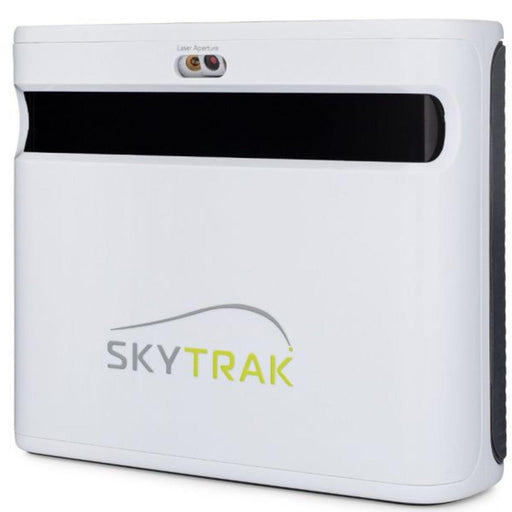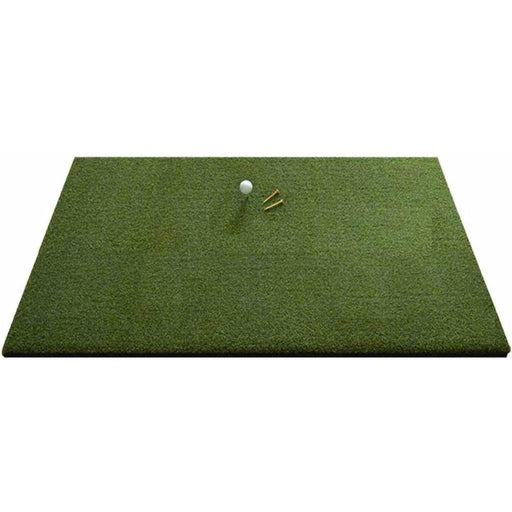
Buying vs. Renting a Golf Simulator
For golf enthusiasts, having access to a golf simulator can be a game-changer. It offers the convenience of practicing swings, improving skills, and enjoying virtual rounds of golf regardless of weather conditions. But when it comes to acquiring a golf simulator, should you buy one outright or opt for a rental arrangement? In this blog post, we'll delve into the factors to consider when deciding between buying and renting a golf simulator.
1. Budget Considerations:
Buying a Golf Simulator: Purchasing a golf simulator involves a substantial upfront investment. It includes the cost of the simulator hardware, software, projection setup, and any additional accessories. While the initial expense might be higher, owning a golf simulator offers long-term access and potentially saves money in the long run, especially if you're a dedicated golfer who plans to use it frequently.
Renting a Golf Simulator: Renting a golf simulator is often more budget-friendly in the short term. You pay a regular fee to use the simulator for a specified duration, which can range from a few hours to several days. This is a great option if you want occasional access to a simulator without the commitment of ownership.
2. Frequency of Use:
Buying a Golf Simulator: If you're an avid golfer and foresee using the simulator regularly, buying one might be a sensible investment. Owning a simulator allows you to practice at your convenience and fine-tune your skills over time. It's particularly valuable for golfers who want to consistently work on their game and track their progress.
Renting a Golf Simulator: Renting is an attractive choice if you only intend to use the simulator sporadically. Perhaps you're hosting a golf-themed event, a party, or a corporate gathering. Renting provides access to a high-quality simulator without the commitment of ownership, making it suitable for one-off occasions.
3. Maintenance and Upgrades:
Buying a Golf Simulator: When you own a golf simulator, you're responsible for its maintenance and upkeep. This includes routine maintenance, software updates, and potential equipment upgrades to keep up with evolving technology. While this gives you full control, it also requires a level of commitment to ensure optimal performance.
Renting a Golf Simulator: When you rent a golf simulator, maintenance and upgrades are typically managed by the rental provider. This alleviates the responsibility from your shoulders and ensures that you're always using the latest technology and well-maintained equipment.
4. Space Considerations:
Buying a Golf Simulator: Owning a golf simulator requires dedicated space in your home or facility. You'll need to set up the simulator hardware, projection screen, and ensure there's ample room for swinging comfortably. This can be a drawback if you have limited space available.
Renting a Golf Simulator: Renting offers flexibility in terms of location. You can set up the simulator temporarily in a larger space or even rent a space specifically for the occasion. This is particularly beneficial for events or gatherings where a suitable space might not be available permanently.
Choosing Your Swing Sanctuary:
The decision between buying and renting a golf simulator boils down to your unique circumstances, preferences, and usage patterns. If you're a committed golfer looking to refine your skills and practice consistently, owning a golf simulator might be a worthwhile investment. On the other hand, if you're seeking occasional access for events, parties, or special occasions, renting provides a cost-effective solution without the long-term commitment.
Consider your budget, frequency of use, maintenance preferences, and available space when making your choice. Both options offer their own set of advantages, so carefully evaluate your needs to determine which one aligns best with your golfing goals and lifestyle.

Have Questions About Golf Simulators?
Our expert team is here to help you find the perfect golf simulator for your needs.
Featured products
-
SkyTrak+
Original price $2,995.00 - Original price $3,145.00Original price$2,995.00 - $3,145.00$2,995.00 - $3,145.00Current price $2,995.00Introducing the SkyTrak+ Launch Monitor: Unmatched Accuracy and Advanced Features Experience a new level of precision and innovation with the SkyTr...
View full details -
ProTee Majestic Simulator Package
Original price $9,618.00 - Original price $13,848.00Original price$9,618.00 - $13,848.00$9,618.00 - $13,848.00Current price $9,618.00ProTee Majestic Golf Simulator Package: Elevate Your Indoor Golf Experience Transform your home or business into a golfer’s dream with the ProTee M...
View full details -
Eagle Golf Mat
Original price $370.00 - Original price $1,130.00Original price $370.00$370.00$370.00 - $1,130.00Current price $370.00Introducing the Eagle Golf Mat: The Ultimate Golf Experience Are you passionate about golf and demand nothing but the very best in your practice eq...
View full details -
Retractable HomeCourse® Golf ProScreen 180
Original price $2,299.00Original price $2,299.00 - Original price $2,299.00Original price $2,299.00Current price $1,999.00$1,999.00 - $1,999.00Current price $1,999.00HomeCourse® Golf ProScreen 180 HomeCourse® Golf ProScreen 180 is a retractable golf screen and enclosure. HomeCourse® Golf ProScreen 180's ballisti...
View full details -
The Augusta V2 4'x12' 2 Cups
Original price $399.00Original price $399.00 - Original price $399.00Original price $399.00Current price $329.00$329.00 - $329.00Current price $329.00The Augusta is one of Big Moss’ traditional models. It offers unmatched versatility for teaching and year round practice. Make a long-term investme...
View full details





